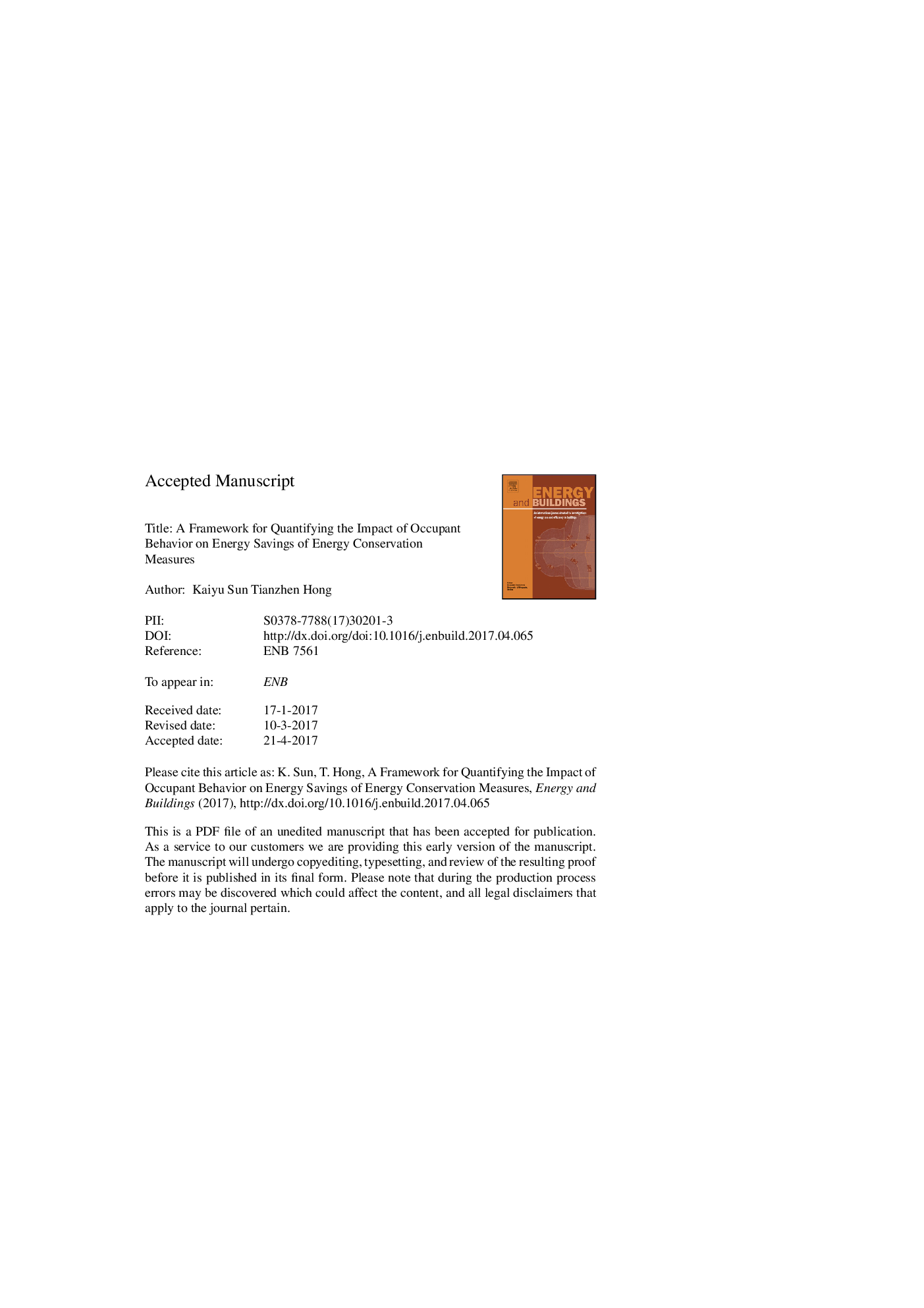| Article ID | Journal | Published Year | Pages | File Type |
|---|---|---|---|---|
| 4919237 | Energy and Buildings | 2017 | 38 Pages |
Abstract
This study presents a framework for quantifying the impact of occupant behaviors on ECM energy savings using building performance simulation. During the first step of the study, three occupant behavior styles (austerity, normal, and wasteful) were defined to represent different levels of energy consciousness of occupants regarding their interactions with building energy systems (HVAC, windows, lights and plug-in equipment). Next, a simulation workflow was introduced to determine a range of the ECM energy savings. Then, guidance was provided to interpret the range of ECM savings to support ECM decision making. Finally, a pilot study was performed in a real building to demonstrate the application of the framework. Simulation results show that the impact of occupant behaviors on ECM savings vary with the type of ECM. Occupant behavior minimally affects energy savings for ECMs that are technology-driven (the relative savings differ by less than 2%) and have little interaction with the occupants; for ECMs with strong occupant interaction, such as the use of zonal control variable refrigerant flow system and natural ventilation, energy savings are significantly affected by occupant behavior (the relative savings differ by up to 20%). The study framework provides a novel, holistic approach to assessing the uncertainty of ECM energy savings related to occupant behavior, enabling stakeholders to understand and assess the risk of adopting energy efficiency technologies for new and existing buildings.
Keywords
Related Topics
Physical Sciences and Engineering
Energy
Renewable Energy, Sustainability and the Environment
Authors
Kaiyu Sun, Tianzhen Hong,
